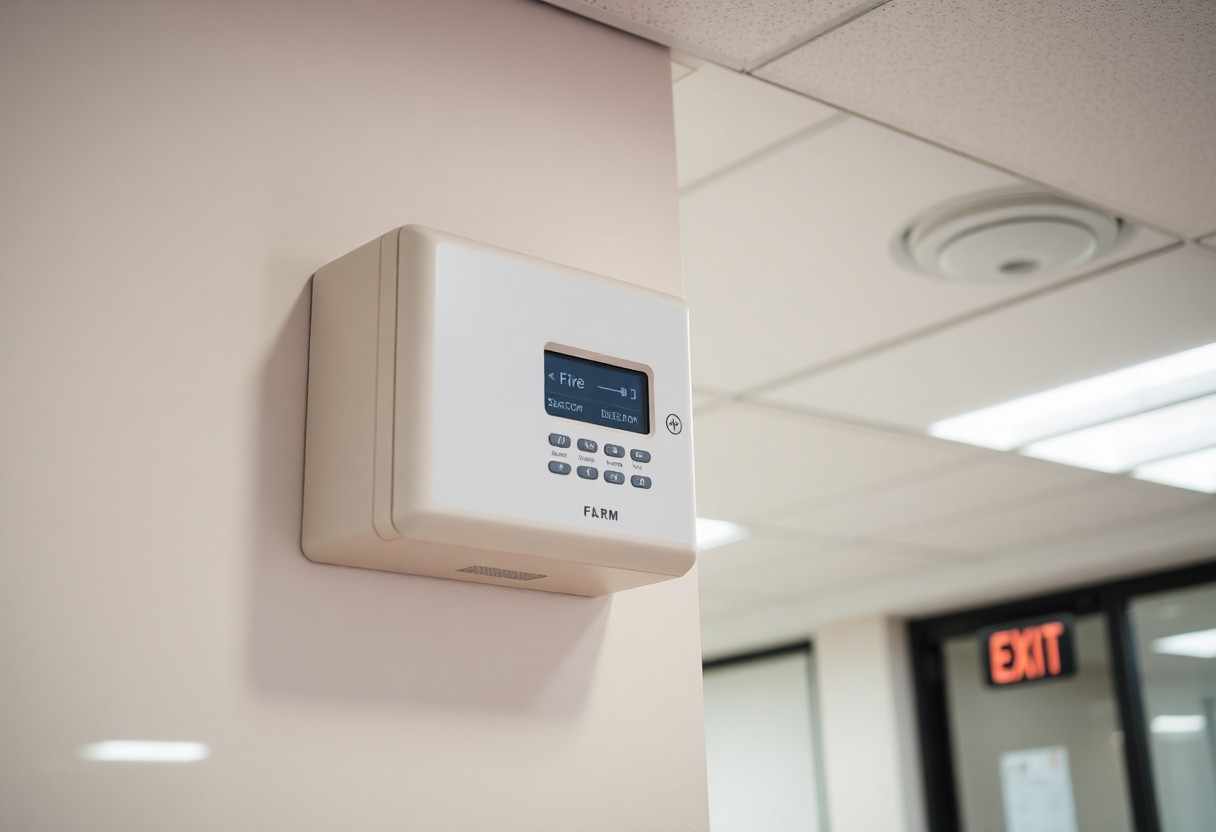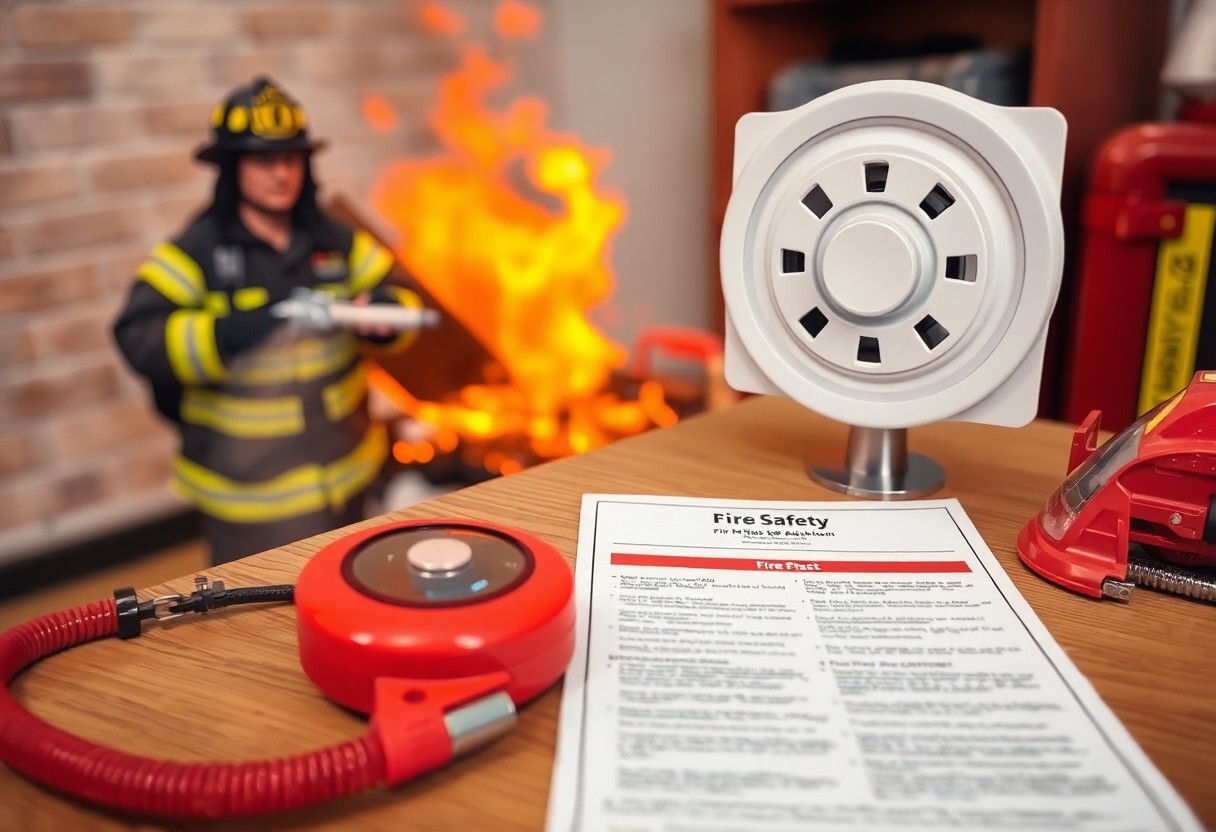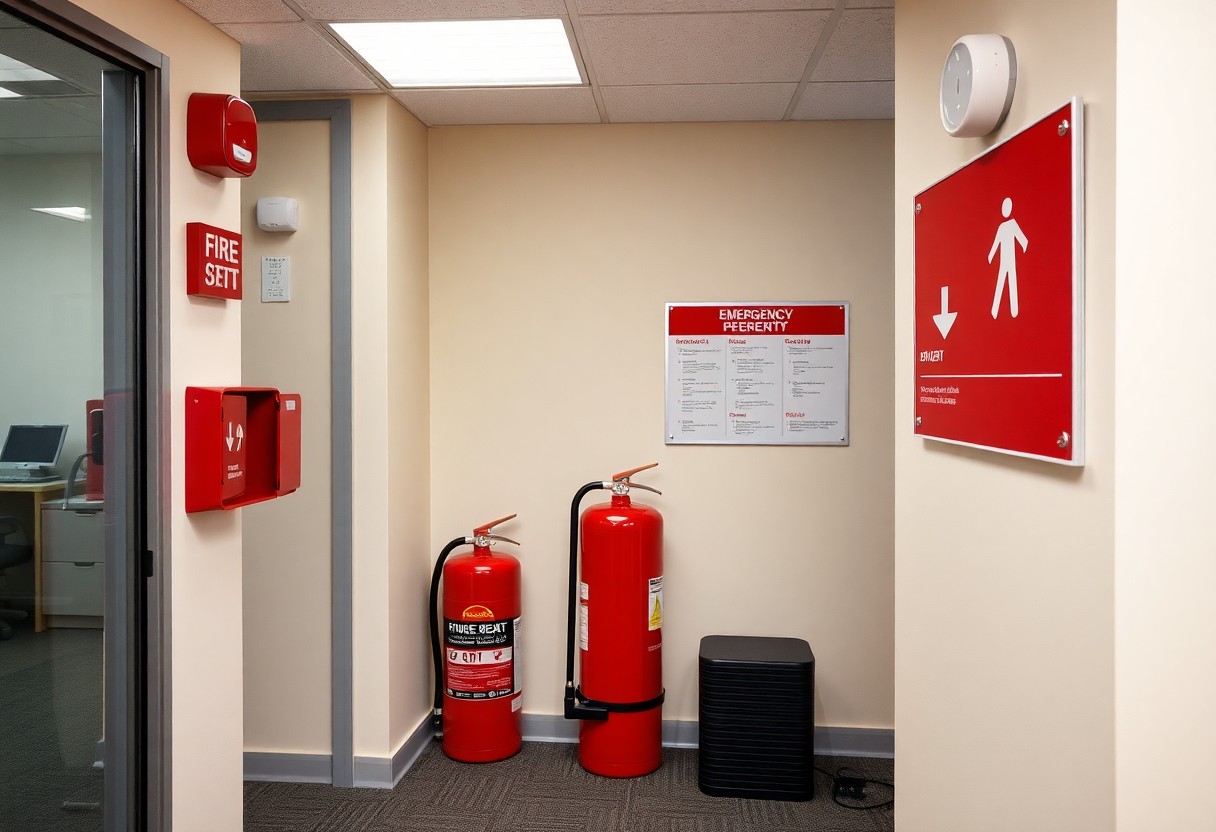Alarms serve as your first line of defense against the devastating effects of fire, offering vital early warning to keep you and your loved ones safe. In this comprehensive overview, you will gain insights into how fire alarms work, their types, and the critical role they play in protecting your home or workplace. By understanding these components, you can make informed decisions about your safety measures and ensure your environment is adequately equipped to handle potential fire threats.
The Role of Fire Alarms in Safety
As you navigate the importance of fire safety, understanding the role of fire alarms is paramount. These devices serve as your first line of defense against the unforeseen dangers of fire, alerting you to potential threats and providing the necessary response time to ensure safety in your home or workplace. By integrating fire alarms into your safety protocols, you create a proactive environment that prioritizes protection for you and your loved ones.
Early Detection of Fire Hazards
Any fire alarm system is designed to detect smoke, heat, or flames at the earliest possible moment. This advanced technology allows you to respond quickly, potentially preventing a small fire from escalating into a devastating catastrophe. Installing smoke detectors in key areas of your property ensures that you are alerted without delay, enabling swift action to address any immediate threats.
Protection of Life and Property
Detection by fire alarms is crucial for safeguarding both life and property. The timely alerts provided by these systems allow you to evacuate safely, ensuring that everyone is accounted for in the event of a fire. Moreover, by alerting emergency services quickly, you increase the likelihood of minimizing damage to your property, potentially saving significant costs and preserving cherished belongings. Ensuring your fire alarms are functioning optimally is a fundamental step in creating a secure living environment.
Even in less severe scenarios, having a fire alarm can significantly reduce the impact of fire damage. By acting as an early warning system, these alarms can provide you with vital minutes to evacuate, gather your loved ones, and initiate a plan of action. Some fire alarm systems can even be interconnected with sprinklers or other suppression systems, enhancing your overall safety strategy. Prioritizing fire alarm installation and maintenance safeguards your home, investments, and most importantly, the lives of you and your family.
Types of Fire Alarms
Some imperative types of fire alarms include:
- Ionization Alarms
- Photoelectric Alarms
- Combination Alarms
- Heat Detectors
- Smart Fire Alarms
Knowing the differences between these systems is vital for choosing the right fire alarm for your needs.
| Type | Function |
| Ionization Alarms | Detect fast, flaming fires |
| Photoelectric Alarms | Detect smoldering, smoky fires |
| Combination Alarms | Offer both ionization and photoelectric detection |
| Heat Detectors | Trigger when a specific temperature is reached |
| Smart Fire Alarms | Connects to your smart home system for alerts |
Ionization vs. Photoelectric Alarms
Ionization alarms are designed to sense fast-burning fires, while photoelectric alarms are more effective at detecting slow, smoldering fires. Each type serves a specific purpose and can significantly affect fire detection outcomes. It’s imperative to assess your environment and potential fire risks when selecting the best option for your safety.
Smart Fire Alarm Systems
With the advent of technology, smart fire alarm systems have become a popular choice for many homeowners. These alarms can connect to your smartphone or smart home system, providing real-time notifications and alerts for potential fire hazards, even when you’re away from home.
Alarms with smart technology offer greater peace of mind as they can provide detailed information about their status and battery life. They might also include features such as carbon monoxide detection and integration with other smart home devices, allowing you to automate your responses to emergencies and enhance your overall safety strategy. By utilizing these innovative systems, you can stay ahead of fire risks and ensure your home is well-protected.
Installation and Maintenance
If you want to ensure optimal functionality and reliability of your fire alarm system, proper installation and regular maintenance are necessary. Correct placement of alarms in key areas can make a significant difference in early fire detection, while routine checks guarantee that the system remains operational. Adhering to local safety codes and guidelines during installation, and scheduling consistent maintenance, will help protect your property and enhance safety for all occupants.
Best Practices for Installation
Maintenance of your fire alarm system begins with thoughtful installation. Position alarms on each level of your property, near sleeping areas, and away from vents or windows that may obstruct smoke detection. Ensure they are mounted at the correct height and that wiring is correctly done to avoid false alarms. Always refer to manufacturer guidelines and local regulations to achieve the best results.
Importance of Regular Maintenance
Maintenance of your fire alarm system is vital to ensure it operates effectively when needed. Regular testing, battery replacement, and professional inspections help identify any potential issues that could impede the system’s performance. Prioritizing these actions means you are more likely to detect fires early, potentially saving lives and minimizing property damage.
Due to the inherent risk of fire, you cannot afford to overlook maintenance tasks. Scheduling routine inspections and tests helps identify weak spots within your system and ensures that all components are functioning correctly. It is advisable to practice self-testing monthly and engage a professional for comprehensive checks annually. This diligence works to safeguard not only your property but also the lives of those inside it.
Legal and Regulatory Requirements
Despite the importance of fire alarms in safeguarding lives and property, they are also governed by a variety of legal and regulatory requirements. These regulations ensure that fire alarm systems are installed and maintained according to specific standards, ultimately enhancing their reliability and effectiveness. As a property owner or manager, it’s vital that you familiarize yourself with these requirements to ensure compliance and protect everyone in your building.
Building Codes and Standards
An important component of fire safety is adhering to local and national building codes and standards, which dictate how fire alarm systems should be designed, installed, and maintained. These codes serve as a framework to ensure that systems are effective in alerting occupants during emergencies. Keeping your fire alarm system compliant with these standards not only ensures safety but also minimizes potential liability issues.
Compliance with Local Regulations
One of the most important aspects of fire alarm systems is complying with local regulations, which can vary widely between jurisdictions. Local authorities often require specific features or systems to meet the unique needs of the area. This ongoing compliance is key to keeping your property safe and avoiding costly fines.
And by staying informed about local regulations, you can ensure your fire alarm system meets all necessary criteria. Engaging with local fire departments or safety consultants can provide you with clarity on specific requirements, including installation, maintenance, and inspection schedules. Regularly reviewing these regulations helps you stay ahead of potential changes and guarantees that your fire alarm system is always in line with local expectations. Investing time in understanding these regulations ultimately protects your property and enhances the safety of all occupants.
Education and Training
Your understanding of fire safety starts with education and training. It is important for you to be familiar with how fire alarms function and how to respond in case of an emergency. This knowledge not only helps in protecting yourself but also aids in ensuring the safety of others around you, making it a shared responsibility in any environment.
Importance of Fire Drills
On a regular basis, conducting fire drills is vital for ensuring that you and your colleagues or family members know how to react promptly in the event of a fire alarm activation. Fire drills provide a practical application of your fire safety training, allowing you to practice evacuation routes and procedures in a controlled setting. This preparedness can significantly reduce panic during an actual emergency, making a difference in how quickly you and others can reach safety.
Community Awareness Programs
Beside individual training, community awareness programs play an important role in promoting fire safety. These initiatives educate local residents about the importance of fire alarms, proper usage, and evacuation plans, fostering a collective sense of responsibility within the community.
Further, community awareness programs often include workshops, seminars, and informational materials distributed to residents. This outreach helps to engage the community by elucidating fire safety measures, while also addressing specific local risks. By participating in these programs, you not only enhance your own knowledge but contribute to a more informed and vigilant community, ultimately reducing the risk and consequences of fire-related incidents.
Common Myths and Misconceptions
Keep in mind that the world of fire alarms is surrounded by numerous myths and misconceptions that can mislead you in taking the right precautions. From their reliability to the frequency of false alarms, understanding these myths is important for ensuring your safety and maintaining your systems effectively.
Myths About Fire Alarm Reliability
Behind many myths lies the belief that fire alarms are either overly reliable or not reliable enough. Some individuals assume that having a fire alarm means they are fully protected and ignore regular maintenance. In reality, alarms require testing and servicing to ensure they function correctly when needed most.
Misconceptions About False Alarms
Below the surface, many people believe that false alarms are common and can lead to complacency regarding fire safety measures. Such misconceptions can undermine the seriousness of fire alarm systems, prompting you to overlook their importance in safeguarding your environment.
Due to frequent false alarms, you might think that fire alarms are more trouble than they are worth. However, many false activations are often caused by user error, environmental factors, or poorly maintained systems, rather than the alarm’s inherent reliability. Understanding this can help you appreciate the need for proper installation, routine maintenance, and user education, significantly reducing the incidence of false alarms while enhancing overall fire safety.
Summing up
As a reminder, understanding the importance of fire alarms is necessary for ensuring the safety of your home and loved ones. By familiarizing yourself with how fire alarms function, their maintenance requirements, and the benefits they provide, you empower yourself to take proactive measures against fire hazards. Your awareness can make a significant difference in emergency situations, helping you act swiftly and effectively. Prioritize the installation and upkeep of fire alarms in your living spaces to create a safer environment for everyone in your household.


